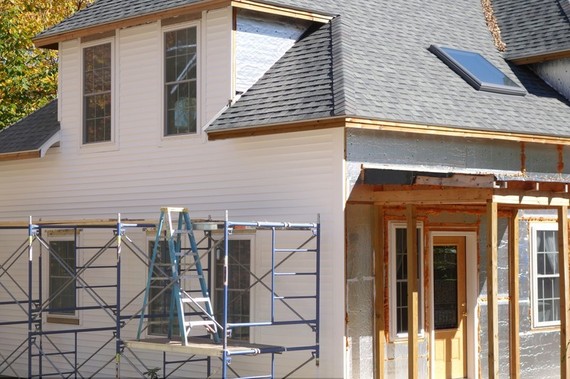Thursday, March 12, 2015
Wholesale or Rental Rehabs -- How Cheap Is a Good Deal?
This week I was reading an article over at money.cnn.com titled "Buffalo's $1 homes aren't as cheap as they seem." These homes are being sold by Buffalo's Urban Homesteading Program, requiring that buyers fix any code violations within 18 months and live in the home for at least three years.
These aren't fix and flip, rental or wholesale investors, but the experiences of these buyers can be good education for investors.
The immediate reaction of an investor could be elation when they find they can get a home for a tiny price, and it's hard to get any lower than a buck. Our first clue that dirt cheap may not be the ultimate deal is that fewer than 10 of these deals close each year.
An overview with dollar amounts for finished homes in this program tells us:
• $55,000 in renovation for one home, including all plumbing, electrical wiring, heating/cooling, and a new roof.
• Just removal of demolition trash on that home was a $2,000 bill.
• One buyer, in the process of spending $78,000 in renovations to their $1 home, became a licensed electrician training to do as much as possible without hiring others.
• One couple just getting started are using a lot of friend volunteer labor, have only spent $5,000 so far, but they expect to spend $30,000 before they're done.
Rehab Profits are High for Good Reason
Fix & Flip investors, wholesalers, and even rental property buyers who do rehab all know that they can greatly increase their profits through rehab. Instead of just buying a ready to rent home at a discount, the rehab phase of the project can add a large profit component.
Someone is going to profit from rehab work, and the more work necessary the greater the potential profit. However, too many investors let their potential profits flow down to their contractors and repair companies. There are predictable reasons for this:
• Poor negotiation skills when seeking contractors.
• Allowing contractors to buy and mark up materials.
• Poor project management skills, going over budget and/or completion dates.
• Expensive project financing.
The first consideration is whether or not you want to be a hands-on project manager. It is certainly acceptable to put the entire job into the hands of a general contractor, but they will realize the bulk of the profits available from the work. The more you can take over, or the better you can negotiate, the fatter your ROI. You can improve the results if you offer the general contractor a bonus for coming in under projected costs if you don't want to be involved that much.
If you want to maximize your profits, you'll take control of some of the materials purchasing and sub-contractor hiring. Some proven profit-enhancers include:
• Get builder accounts at Lowes and Home Depot type stores.
• Select your materials and get price breakouts, do your own ordering and just have contractors pick up materials.
• Check out liquidators, companies and stores that buy in bulk materials from completed building projects. They often have what you need at deep discounts to even builder prices at the big stores.
• Using contract terms, keep projects on schedule, as holding costs can rip a hole in profits.
• Do your own hiring of sub-contractors, and get multiple bids. Hone your negotiation skills, but the low bid is often one you should throw out.
• If you need transaction funding to get through the process, do your research to find the lowest cost solutions. Sometimes it's friends, associates, or relatives, rather than transaction lenders.
You can do all of the above perfectly right and still have a poor result if you buy wrong. This is a two-part process. If you're wholesaling or doing fix and flip, you must have a good buyer list and know what a willing buyer on that list will pay for the home. If you're rehabbing to convert to a rental home, know your market and prevailing rents.
Run the numbers to know what you can sell or rent the home for. Then do a thorough preliminary budget for the rehab, BEFORE you buy. Once you know rehab costs and ultimate sale or rental income, negotiate a purchase price for maximum profit.
Source: Dean Graziosi Huffington Post
Make sure to check out Dean's most recent Huffington Post articles:
2/24/15 Self-directed Retirement Accounts and Turnkey Rental Investing
2/17/15 Enthusiasm for 2015 Housing Markets
2/13/15 Trulia Asks: 'Are We Past the Flipping Point?'
2/5/15 Is Multi-Family Worth a Look for Your Portfolio?
You can also follow Dean Graziosi on Instagram
Subscribe to:
Post Comments (Atom)

No comments:
Post a Comment